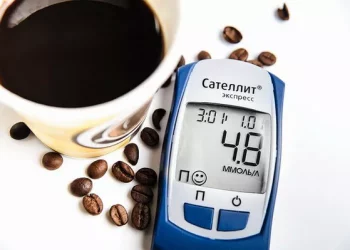Broccoli, long celebrated for its numerous health benefits, may now have a new claim to fame: reducing the risk of type 2 diabetes. New research from the University of Gothenburg reveals that a compound found in the vegetable could help lower blood sugar levels, potentially offering a natural way to combat the growing diabetes epidemic.
Sulforaphane: The Key to Broccoli’s Potential
In a study published in Nature Microbiology, researchers found that participants who consumed sulforaphane, a compound naturally present in broccoli, showed a significant reduction in fasting blood sugar compared to those who received a placebo. This compound, already identified as a potential diabetes-fighting agent, may offer a breakthrough in preventing or managing the disease.
The study’s findings are particularly promising for individuals with elevated fasting blood sugar, a precursor to type 2 diabetes. Researchers observed the most pronounced results in a subgroup of participants who had early-stage, age-related diabetes. These individuals, who had relatively low body mass index (BMI) and minimal insulin resistance, benefited the most from the sulforaphane supplement.
The Study: A Closer Look
The study involved 89 participants, all of whom were overweight or obese and between 35 to 75 years old. Each participant had elevated fasting blood sugar, a sign of prediabetes. The research team randomly assigned participants to receive either sulforaphane or a placebo for 12 weeks. Of the 89 participants, 74 completed the study, providing valuable data on the compound’s effectiveness.
In addition to measuring blood sugar levels, the study examined how gut bacteria interacted with sulforaphane, finding that certain bacteria could enhance the compound’s effectiveness in the body. This discovery opens up new possibilities for personalized treatment based on an individual’s gut microbiome.
A Growing Trend: Food as Medicine
As interest in “food as medicine” grows, this study could further shift the focus toward diet as a means of disease prevention and management. Professor Anders Rosengren, a lead researcher, noted that the treatment options for prediabetes are currently limited, but sulforaphane could offer a targeted, functional food-based solution.
“This research not only highlights the potential of broccoli in preventing type 2 diabetes but also sheds light on the role of gut bacteria in treatment responses,” Professor Rosengren said. “These findings could have wider implications for how we understand and treat metabolic disorders.”
As more people seek natural, dietary solutions to chronic health conditions, this study reinforces the growing belief that what we eat can significantly impact our long-term well-being.
Related topics:
The Surprising Role of Saturated Fat and Sodium in Blood Sugar Management
American Diabetes Association Updates 2025 Standards of Care for Diabetes Management
Eating Out with Type 1 Diabetes: Mila Clarke’s Tips for Stress-Free Dining



























